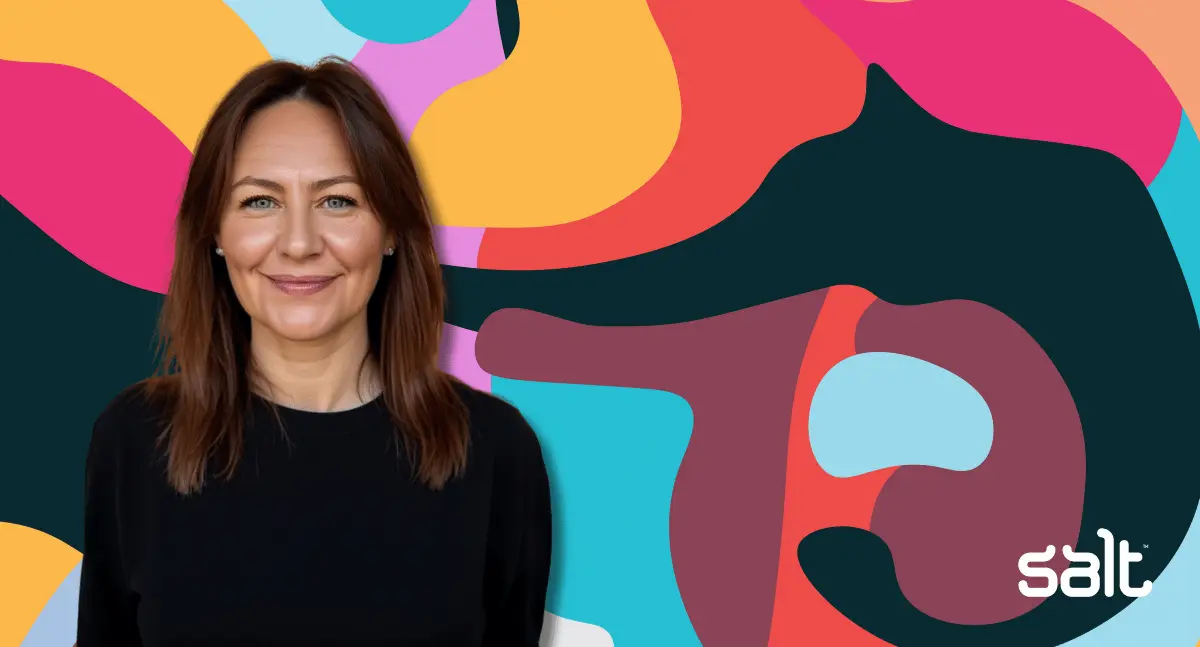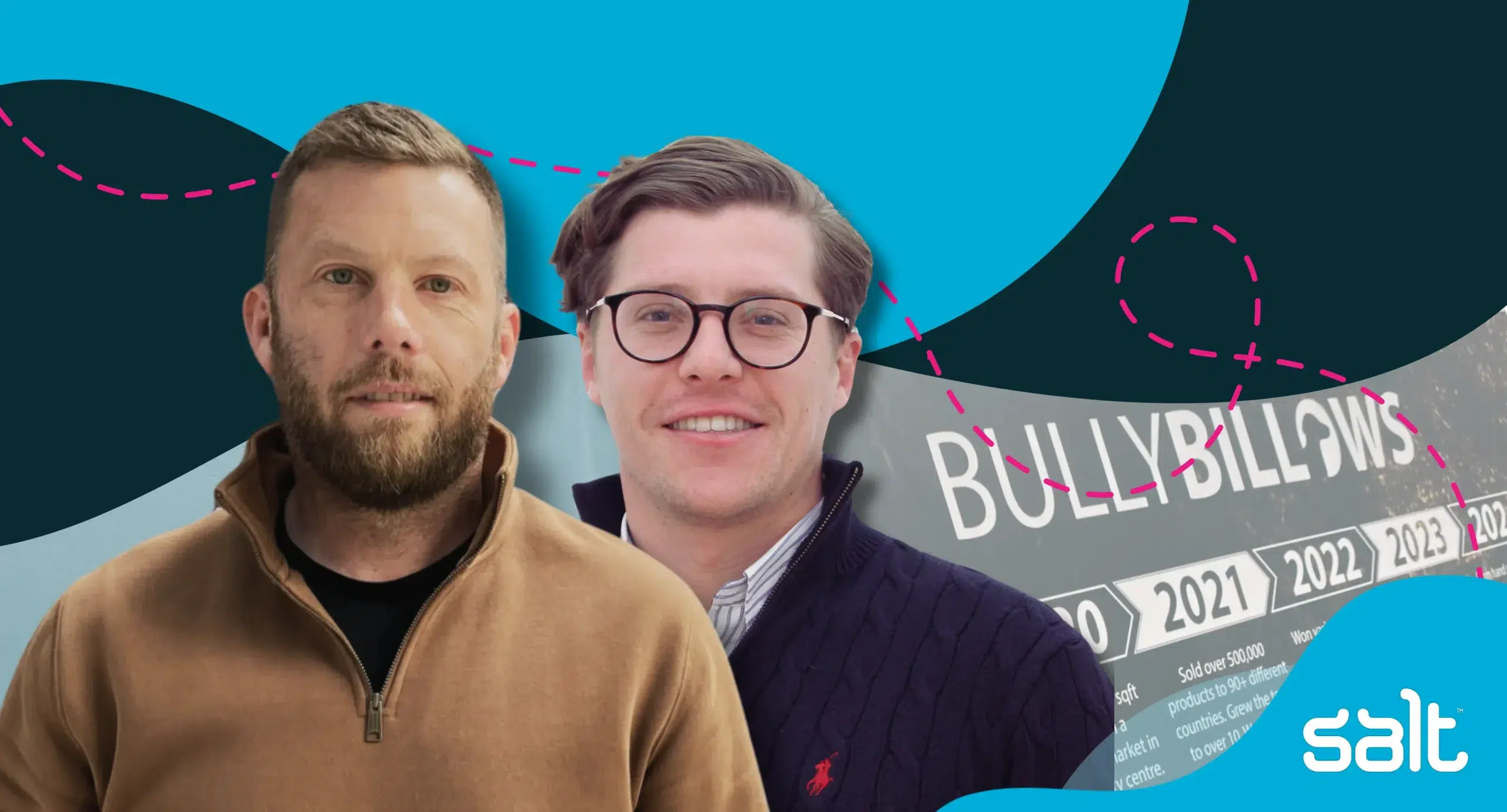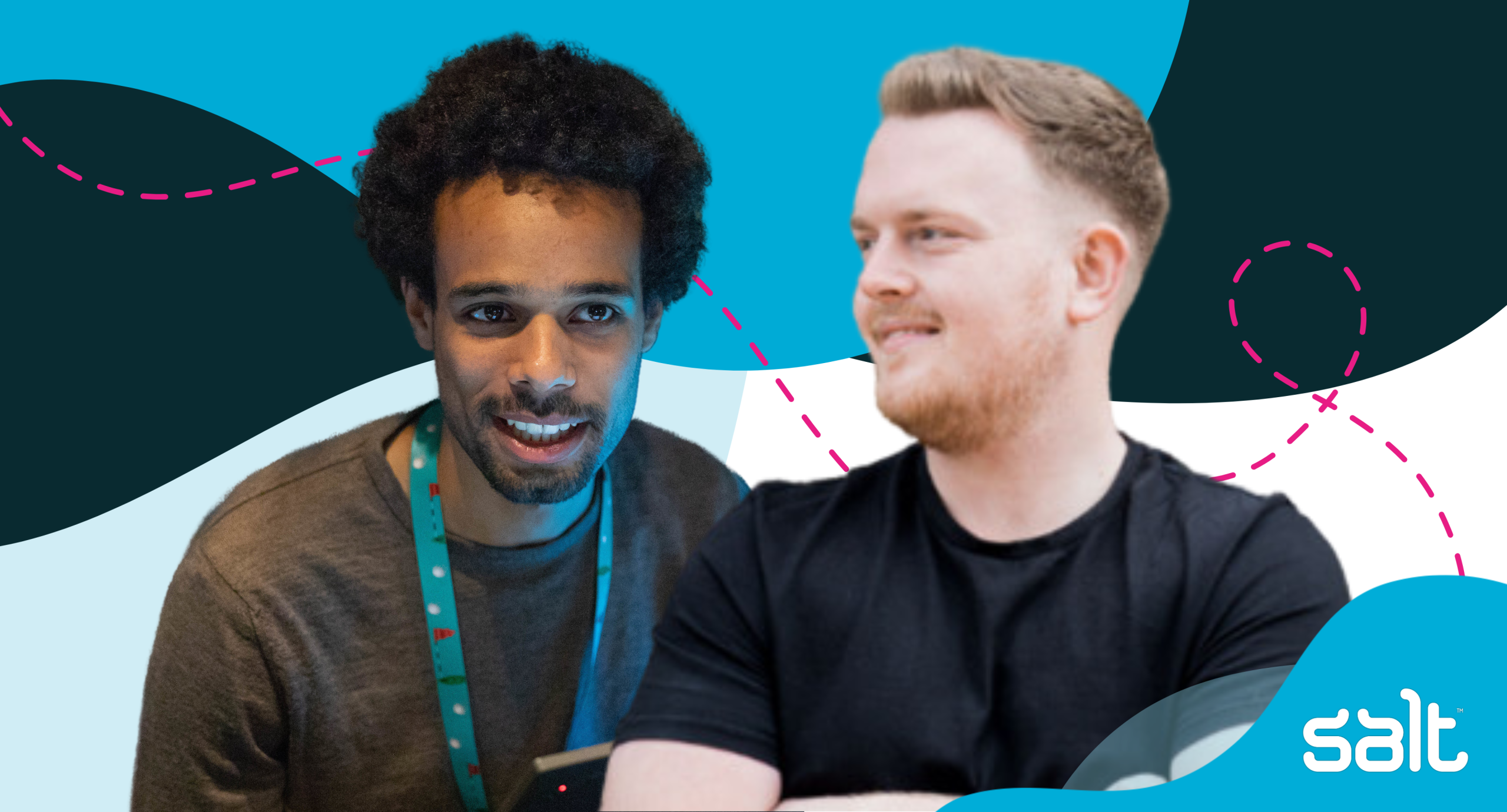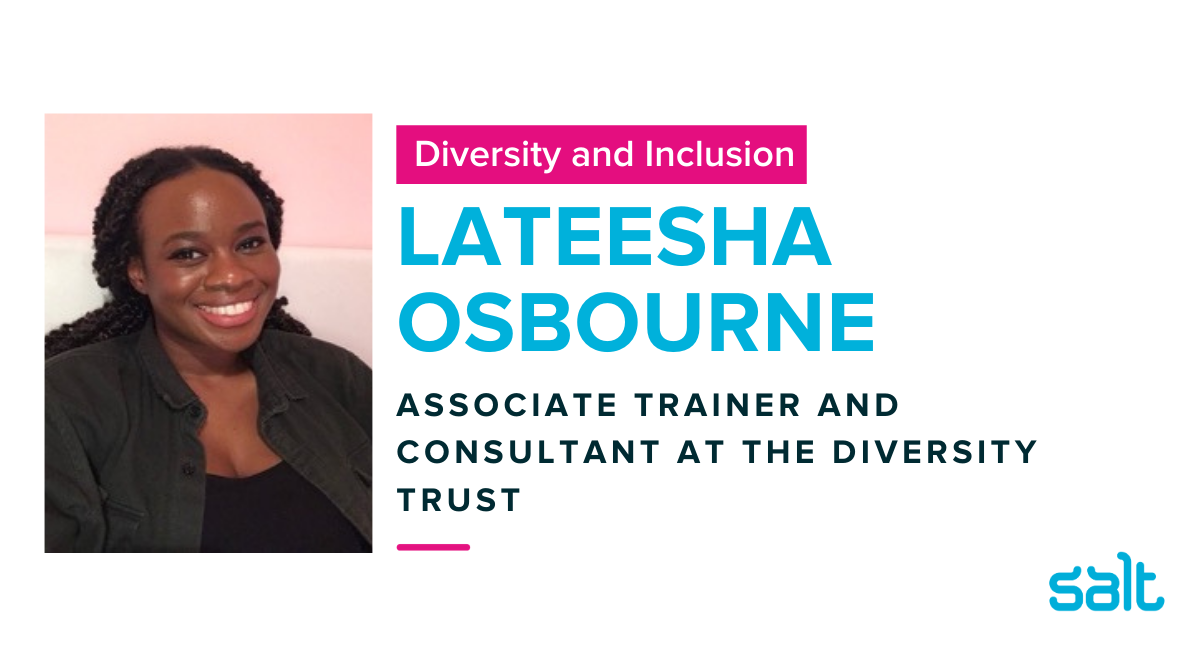
The global pandemic and the unlawful death of George Floyd last year triggered a change in diversity, equality and inclusion conversations in the workplace, changing the focus to race. In this interview, we speak to Lateesha Osbourne about how the Black Lives Matter protests changed the conversation around race and equality in the workplace, what employers can do to make sure that they are prepared for action, and how to foster an inclusive workforce and attract diverse talent.
Lateesha is a final year PhD student at the University of Bath, in the Psychology department. Her doctoral research focuses on Black students’ sense of identity and belonging in higher education. She is also a Consultant and Trainer in all things equality, diversity and inclusion at The Diversity Trust and has been in the EDI industry for over six years. She shares her knowledge on how the conversation is changing plus tips about what employers need to be aware of, and how they can act now.
Thank you for speaking to me and sharing your insights. What would you say diversity, equality and inclusion mean to you and why?
To me, in the line of work I’m in and my own personal values, it means a lot because I think it’s truly and proactively about celebrating everyone. If we think about EDI (equality, diversity and inclusion) as celebrating everyone, the question is, why wouldn’t we want to do that? I think it’s important to also acknowledge that historically that’s not always been the case.
Often, we’ve had women, Black, Asian, and minority ethnic people, and the LGBTQIA+ community being excluded, quite blatantly and overtly through things like housing and employment discrimination, so it’s important for us to ensure we learn from that, because human behaviour is fairly predictable. We can often go around in circles, if we’re not careful, so EDI can help us to learn important lessons from the past and build a future that we can all get behind and be proud of.
Race, diversity, the Black Lives Matter protests and the unlawful killing of Black people are not new occurrences but some people still think that they are. What are your thoughts on this and how do you think that we could approach that?
Yes, 100% they’re not new at all and there has been centuries of racism and direct persecution of Black people. I think one issue is that a lot of the time our curriculum doesn’t reflect this history in the UK. Often when we talk about civil rights and we talk about race and racism, we talk about it as a problem “over there” (in America) and act like we had nothing to do with gross injustices such as slavery.
I think it’s important that in the UK, we give a much more well-rounded understanding of history, including Black history. The way Britain came to be such a prosperous power was largely due to its central involvement in the slave trade – and it’s an injustice to not teach full history of Britain and how Britain became ‘Great’ in that sense. It’s also acknowledging that Black history isn’t only limited to slavery and civil rights, however.
I think all of this has a lot to do with why people are surprised – they have no idea. If we taught history fully, we would see a difference in how people receive conversations about race equality. We would be able to get past the shock and move into action as history informs the present. If we look back to even recent history in the last 40 or 50 years, there used to be signs that said “No Blacks, No dogs, No Irish”. So, it’s not that we are always talking about slavery, but the legacy of that is clear in the present day. If people had that historical context, then we’d hear less about how “everything’s about race”.
The protests kicked off a lot of conversations about race equality and now many businesses and individuals are speaking more about how they can try to fix the problem. How do you think that we, as individuals and as businesses, can continue this conversation in a positive way instead of it just being a talking point with no solution?
That’s a good question because I know that in summer last year a lot of people who work in this area felt this was a catalyst but there was some worry that this could be a flash in the pan moment. So there were conversations about how to sustain the momentum of the movement. What I have seen so far is that one of the best ways to do so is to involve leaders.
If leadership teams are seen to be taking action around race equality it communicates that this work is continuous. If it is made clear that we as an organisation are still open to new ideas and ways of thinking, it makes the biggest difference from the top down. Often there are individuals or groups who are dedicated to equality work but they often feel they are talking to a brick wall and so need to be supported by those in positions of power. So a simple message to say “Yes, we are still talking about this, we welcome your ideas and this is not by any means over”, is one proven way that we can sustain momentum.
For many organisations, sometimes addressing issues about race or any form of diversity is sometimes seen as a tick-box activity. I think there is also a fear that these conversations were going to drive people to just fill their boards with more diverse faces just to try and tick that box. This also leads to the question of whether positive discrimination is good or bad. What do you think about this?
Whenever we talk about race and employment, ideas of positive discrimination come up even though positive discrimination is unlawful in the UK. These ideas are only talked about in reference to Black, Asian, minority ethnic people, which is telling because data has shown that Boards are predominantly made up of White men. Even with this evidence, interestingly, we rarely hear that positive discrimination or bias could be at the route of this pattern. It is only when there is the challenge to change this pattern that we hear arguments like “It needs to be the best person for the job”. Why is it that when diversity is mentioned people assume that standards are being lowered?
We need to reflect on what we’re implying about diversity. Diversity doesn’t mean lowering the standard of candidates – and some people are conflating those things. This is important to reflect on. Why is that connection made so easily? Surely we can find women, Black, Asian, minority ethnic people, LGBTQ+ people and disabled people who have the skills, talent and experience to be on boards?
The other assumption is that diversifying means replacing, and fear can come into play with that. It’s not about replacing one group with another; it’s questioning why one group have had a monopoly on Senior Leadership positions and Boards across industries. It’s a good thing to be investigating all of these things because it can only strengthen your company to make sure you have people in positions for the right reasons.
After the BLM protests, The Diversity Trust saw around a 700% increase in inquiries for equality training. What do you think that this shows?
We have seen so much Black trauma play out on social and broadcast media. We have seen countless Black people lose their lives this way. I think we need to reflect on that, so that we don’t become desensitised to it.
I think the increase in inquiries shows the murder of George Floyd was undeniable and acted as a catalyst for many people. That’s not to say that there weren’t similar moments of reflection with the killings of Sandra Bland, Tamir Rice, Trayvon Martin, Breonna Taylor, Elijah McClain. The difference we did see, however, was the connection between the pandemic and BLM. We were in the early stages of a pandemic which meant we were home, paying even more attention to the news, fearful of Covid, and so this was unmissable.
For some people this was the first time they had witnessed this, and so there was a shock and also realisation that this is not the first, second, third, fourth, fifth, sixth, seventh, eighth, ninth, tenth time this has happened. There’s a sense of “If I’ve missed that, or if I haven’t taken it seriously enough, what else could I have missed?”
At The Diversity Trust we specialise in training and consultation across each of the equalities communities. Race equality training is the most in-demand training right now, and has been since summer last year. However, it’s not the only course that we do. We offer more general equality, diversity and inclusion training, as well as bespoke courses and facilitation. Our expertise covers a wide spectrum of equality issues and we strive to meet the unique needs of our clients.
Since BLM’s resurgence, we’re seeing people get very creative about how they want to tackle some of the issues they have identified. What’s also been great is that we’re seeing individuals and teams being celebrated for the work they have done.
It seems that in some ways diversifying the workforce is easier than being an inclusive company. What would you say that companies can do to be generally inclusive?
I often speak about equality, diversity and inclusion, but they are part of a package. Inclusion can sometimes be overlooked but to me, it is important as it’s the most proactive step. By that I mean that there are different initiatives for diversifying the workplace: internships, outreach programmes, using a specialist recruiter for external support – but inclusion often requires looking inward.
You have to look at your work culture and how empowered people feel. You have to think across different identities and think about how it affects the day-to-day running of your business. For example, when scheduling a weekly catch up, you need to think about whether that time will work for parents and those with caring responsibilities. It may seem small, but it makes a big difference to how valued people feel.
One of the challenges of inclusiveness, which is why diversity and inclusion go together, is the more diverse your workforce, the better able you are to see some of your blind spots. Everyone wants to feel seen, recognised and valued and the only way you can be inclusive is to truly ask questions, to get curious. Giving employees anonymous ways to give you feedback can help to get those insights.
Lastly, your PhD research specifically focuses on Black students’ identities and their sense of belonging in higher education. What would you say have been your key takeaways and what do you think people should be more aware of at this time?
The first thing that is really important for people to understand is Black students are the fastest-growing entrants into higher education. For businesses, this is extremely relevant because the next cohorts and the cohorts after that will have even more Black graduates in them. So when thinking about graduate schemes, you’re increasingly going to have to be thinking about diversity and cultural competency. When I’m talking to clients, they’re recognising the need to consider this in order to be competitive and attractive in an increasingly diverse market.
Secondly, when I present my research findings, people are often quite shocked about how commonplace racism is on university campuses. Higher education is generally seen as a forward-thinking, progressive space, so for some people, the idea that this space can also contain racist harassment and abuse is paradoxical.
There have been many student campaigns highlighting everyday racism and universities have often been slow to respond. Institutions and organisations are now starting to learn that you cannot afford to be slow. We know that graduates are now considering organisations’ stances on race equality and other EDI issues. They will be looking at how inclusive organisations are and what values they have.
When I’m speaking to young people of all races, they’re asking questions; does this company have Black, Asian, minority ethnic people at senior levels? Are women in senior positions and on the Boards? Is there a clear career progression path? Do they have a true commitment to inclusivity? I think organisations cannot underestimate how savvy young people are and that their expectations are high. In order to meet those expectations, the time for change and action is now.
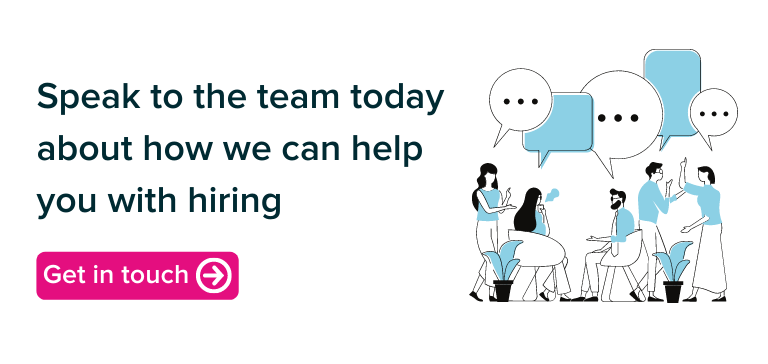
This interview is part of our monthly Diversity and Inclusion series. You can read more of our diversity and inclusion interviews here.
